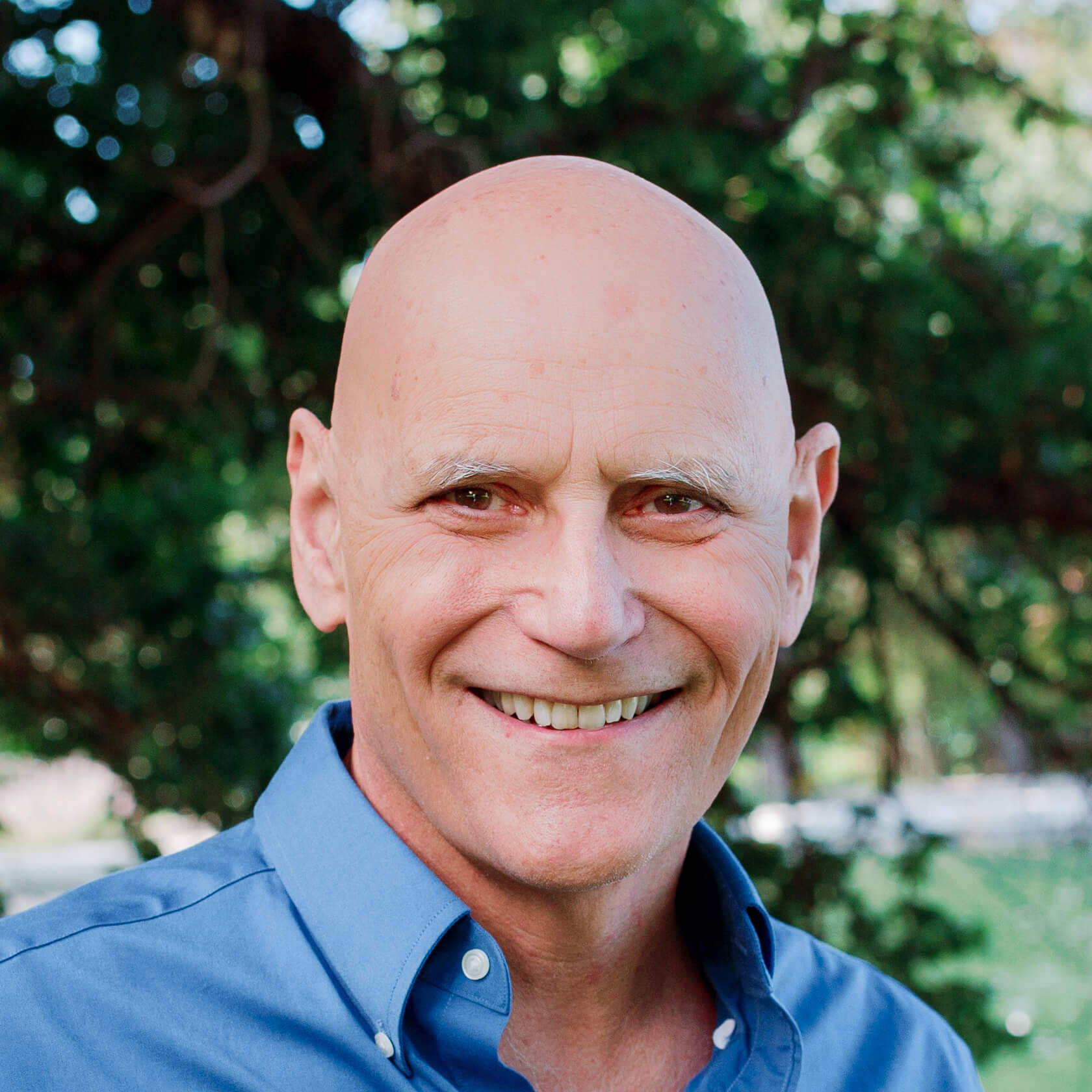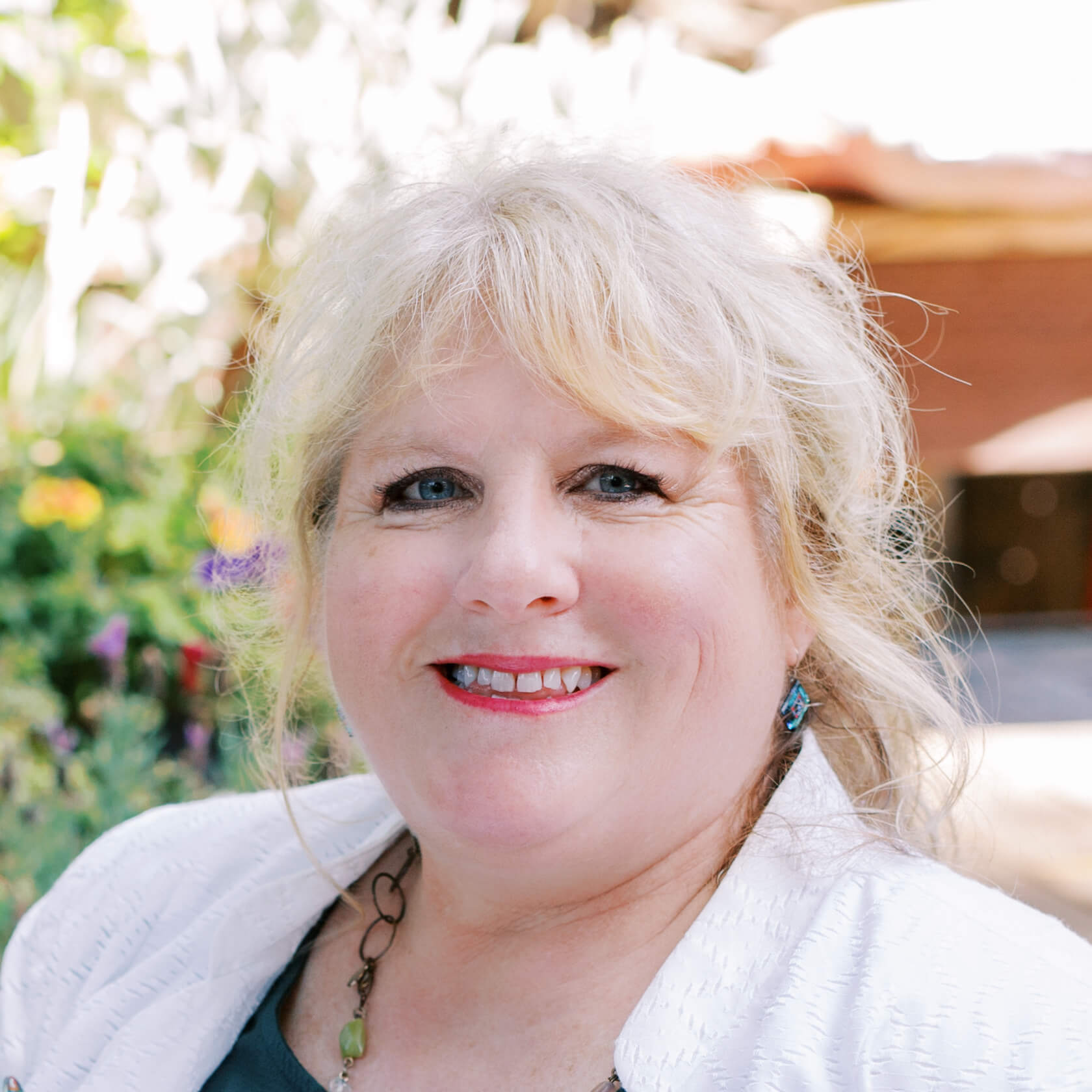
ACT BootCamp® – Philadelphia
If you mention you’re interested in acceptance and commitment therapy (ACT), the next question you’re likely to hear is, “Have you been to BootCamp®?”
Led by ACT master trainers, Drs. Steven C. Hayes, Kelly G. Wilson, and Robyn D. Walser, this essential workshop has been the foundation of ACT training for thousands of practitioners like you. Whether you’re hearing about ACT for the first time or already have formal training, this workshop can take your skills to the next level. The workshop will fully cover the basics of the ACT model and its delivery. You will learn the ins and outs of core ACT concepts such as:
- Psychological flexibility
- The six core processes
- Skills for observing and moving the processes flexibly in session
The workshop will also work the model from the bottom up, presenting the philosophical and theoretical roots of ACT in a clear, fun, and practical way. ACT’s radical shift in thinking is directly relevant to the work you do every day, and it’s the main reason for ACT’s tremendous appeal as a psychotherapy.
At ACT BootCamp®, you’ll learn the foundations of the psychological flexibility model, and develop a beginning set of skills in ACT. You’ll engage with client-therapist role-plays, practice ACT techniques and tools, and get real-time feedback. Over four intensive days, you will get hands-on, guided practice recognizing psychological inflexibility in clients, and learn to fluidly respond from all points on the hexaflex. Come to ACT BootCamp® to learn how ACT can reinvigorate your therapeutic relationship with clients.
For total ACT immersion, attend evening sessions to learn from ACT experts to get your questions answered and build community.
Formal meals will not be provided at the event. Coffee/tea and light refreshments may be made available at various times.
A guest room block is available at the Holiday Inn & Suites Philadelphia West – Drexel Hill at a discounted rate of $139/night. You can reserve your room using the link at the right, or by calling (484) 461-9820 and using the group code ACT. Parking is complimentary at the venue for all attendees.
23 March | Day 1, Thursday | Introduction to ACT | Robyn D. Walser, PhD
Learn the basics of the ACT model and functional contextualism (the philosophy of science that underlies ACT), establish a basic understanding of relational frame theory (RFT—the theory of language that underlies ACT), and how psychological inflexibility is at the heart of human suffering. Enhancing psychological flexibility has been shown in hundreds of studies to improve therapeutic outcomes across many different conditions and in many different areas of human endeavor. By the end of the day, you will have a basic set of skills in the psychological flexibility model and in the six core processes of ACT—flexible contact with the present moment, cognitive defusion, acceptance, self-as-context, values, and committed action.
General Session | 6.5 CE Hours:
7:00 am – 8:00 am: Check-in*
8:00 am – 9:45 am: Language and Psychological Flexibility
9:45 am – 10:00 am: Morning Break*
10:00 am – 12:00 pm: ACT Therapeutic Agreement and Case Conceptualization
12:00 pm – 1:30 pm: Lunch Break*
1:30 pm – 2:45 pm: Creative Hopelessness in Motivation and Change Over Time
2:45 pm – 3:00 pm: Afternoon Break*
3:00 pm – 4:30 pm: Integrating the ACT Core Processes
4:30 pm – 4:45 pm: Afternoon Break (for those staying for optional evening discussion)*
Flexible Implementation of ACT (Optional Evening Session) | 2 CE Hours:
4:45 pm – 6:45 pm: Robyn D. Walser
This event will involve demonstrated roleplay followed by interactive questions and answers. As modeling is one of the best forms of teaching and learning, clinicians will be able to observe how the ACT model is delivered and then explore through questions and answers the work that was completed. You will be able to take these skills and adapt them to your clinical practice.
24 March | Day 2, Friday | ACT Model and Methods | Robyn D. Walser, PhD
Use the skills you learned from your Introduction to ACT course in a practical way so you can integrate ACT into your practice more effectively when you go back to a therapy setting. Robyn will guide you through experiential exercises as well as give you key takeaways you can use to enhance your practice.
General Session | 6.5 CE Hours:
7:30 am – 8:00 am: Check-in*
8:00 am – 9:45 am: Integrating the ACT Core Processes Continued
9:45 am – 10:00 am: Morning Break*
10:00 am – 12:00 pm: Essential Characteristics of the Therapeutic Relationship from an ACT Point of View
12:00 pm – 1:30 am: Lunch Break*
1:30 am – 2:45 pm: The ACT Therapeutic Stance
2:45 pm – 3:00 pm: Afternoon Break*
3:00 pm – 4:30 pm: The ACT Therapeutic Relationship: Competencies and Processes
4:30 pm – 4:45 pm: Afternoon Break (for those staying for the optional evening discussion)*
Clinical Examples and Case Consultation using ACT (Optional Evening Session) | 2 CE Hours:
4:45 pm – 6:45 pm: Robyn D. Walser, PhD & Kelly G. Wilson, PhD
Robyn D. Walser and Kelly Wilson will provide demonstrations of the use of core ACT principles in guiding interventions. The demonstrations will involve real-life problems presented by workshop participants. Following these real-plays, Drs. Walser and Wilson will answer audience questions related to the material taught during the day’s session as well as new issues raised by the real-plays. Demonstrations will include examples of acceptance and defusion processes. This event will involve demonstrated roleplay followed by interactive questions and answers.
25 March | Day 3, Saturday | The Therapeutic Relationship | Kelly G. Wilson, PhD
ACT is not a one-way street. Integrating the practice in your own life, modeling it in session with clients, and actively using the model have been shown to enhance the therapeutic relationship and increase therapeutic effectiveness. ACT Will come alive for you as you apply it to your own life and professional practice in this moving and introspective training. You will learn therapeutic relationship techniques to apply in your current practice.
General Session | 6.5 CE Hours:
7:30 am – 8:00 am: Check-in*
8:00 am – 9:45 am: Suffering and Common Humanity
9:45 am – 10:00 am: Morning Break*
10:00 am – 12:00 pm: Word Prisons: Making Contact with what Obstructs Connection/Finding Connection in the Midst of Suffering
12:00 pm – 1:30 pm: Lunch Break*
1:30 pm – 2:45 pm: Values and Vulnerability at the Heart of Relationships
2:45 pm – 3:00 pm: Afternoon Break*
3:00 pm – 4:30 pm: Values, Commitment, and Deepening Relationships
4:30 pm – 4:45 pm: Afternoon Break (for those staying for optional evening discussions)*
Discussions & Clinical Examples using ACT (Optional Evening Session) | 2 CE Hours:
4:45 pm – 6:45 pm: Kelly G. Wilson, PhD & Steven C. Hayes, PhD
In this case demonstration two highly experienced ACT trainers will work with the same person, applying the psychological flexibility model to the same case, but in different ways. After the demonstrations, the participants will be able to discuss how these methods landed with the client and will be able to dive into the trainers thinking, moment by moment. The pedagogical purpose of this exercise is for attendees to see that there can be great flexibility in applying this model appropriately so as to assure attendees that all of them can learn to do so in a way that fits their particular personality, working style, setting, population, and scope of practice. The psychological flexibility model that underlies ACT was designed from the beginning to have that breath, and research has shown that it does. This evening event will help set up Day 4 of the workshop in which attendees will develop the components skills that allow for the psychological flexibility model to be applied with precision.
26 March | Day 4, Sunday | ACT Skills-Building Intensive | Steven C. Hayes, PhD
Now that participants know the basics of the model, we are going to go deeper. This day will be highly experiential with round after round of clinical skills-building exercises and feedback. It is designed to help enhance your fluidity with using the psychological flexibility model and to provide you with a deeper understanding of ACT as well as specific tools and techniques you can use in your practice to enhance clinical outcomes. You will learn how to read flexibility processes in flight and how to turn in any direction at any time within the model and to still do good work. You will learn how to do individual functional analysis and to choose optimal treatment targets fitted to the individual; how to scale the flexibility model socially and to use it to understand and optimize the therapeutic relationship. You will practice how to use every flexibility process in your moment-to-moment interactions with clients, even when they throw unexpected “curve balls” in session. You will consider how to incorporate other methods and processes into your ACT work without creating client confusion. The end goal of this day is to give you the tool you need for your clients to become your teachers, polishing your ACT skills based on reliable short-term feedback that they cannot help but display. Once there, you can target flexibility processes, from flexibility processes, with flexibility processes confident that even methods you have developed in the moment are likely to land well and lead to client gains over the long term.
General Session | 6.5 CE Hours:
7:30 am – 8:00 am: Check-in*
8:00 am – 9:45 am: From It, Toward It, and Within It: The Therapeutic Relationship in ACT
9:45 am – 10:00 am: Morning Break*
10:00 am – 12:00 pm: Reading the Flexibility Processes
12:00 pm – 1:30 pm: Lunch Break*
1:30 pm – 2:45 pm: Opening the Door to Any Flexibility Process
2:45 pm – 3:00 pm: Afternoon Break*
3:00 pm – 4:30 pm: ACT Done Dynamically
No evening session on last night.
*Not available for CE
Day 1 | Introduction to ACT | Robyn D. Walser, PhD
- Describe the six processes that underlie psychological flexibility/inflexibility.
- Demonstrate the ability to formulate an ACT-consistent therapeutic agreement.
- Describe the language-based processes (e.g., RFT) that create suffering.
- Describe how to use the six core processes in case conceptualization.
- Explain how to use “creative hopelessness” to motivate a change in the control agenda.
- Demonstrate the process of creative hopelessness and how it functions across time.
- Describe and demonstrate how acceptance and defusion work together in supporting openness to experience.
- Describe and demonstrate how present moment and self-as-context assist in establishing awareness
- Describe and demonstrate how values and commitment action support meaningful living.
Day 2 | ACT Model and Methods | Robyn D. Walser, PhD
- Describe the state of ACT as an evidence-based treatment.
- Describe and demonstrate use of perspective-taking and its relationship to creating flexibility.
- Describe and demonstrate how committed action and values clarification work together in creating meaning and behavioral goals.
- Explain how ACT can address multiple clinical issues and presenting problems.
- Define the essential characteristics of the therapeutic relationship from an ACT point of view, including intrapersonal and interpersonal processes.
- Describe the ACT therapeutic stance.
- Describe and demonstrate the ACT therapeutic relationship and its core competencies.
Day 3 | The Therapeutic Relationship | Kelly G. Wilson, PhD
- Describe the role of acceptance and mindfulness processes in mindful interviewing.
- Describe the role of values and committed action processes in mindful interviewing.
- Discuss how to facilitate mindful interviewing with values content.
- Discuss how to facilitate mindful interviewing with painful content.
- Describe the role of perspective-taking in the mindful interview.
- Use shifts in perspective-taking to facilitate mindful engagement in values work.
- Use shifts in perspective-taking to facilitate self-compassion in the face of suffering.
Day 4 | ACT Skills-Building Intensive | Steven C. Hayes, PhD
- Describe how psychological flexibility processes apply to the therapeutic relationship.
- Describe the three overall and essential functions of the ACT clinician regarding psychological flexibility in the therapy session.
- Describe at least one way of reading each flexibility process as it shows up in session.
- Demonstrate the ability to detect flexibility-relevant material in session.
- Describe at least one generally useful method of opening the door to each of the flexibility processes in session.
- Demonstrate the ability to shift the focus to any flexibility target.
- Demonstrate the ability to respond to any client statement from any flexibility process.
Evening Session: Flexible Implementation of ACT | Robyn D. Walser, PhD | 2 CE hours
- Identify ways to use core psychological flexibility processes to focus on interpersonal connection and being bold in therapy
- Identify ways to use core psychological flexibility processes to foster creative hopelessness
- Demonstrate the flexible use of multiple core processes in a single episode of contact with a client
Evening Session: Clinical Examples and Case Consultation using ACT | Robyn D. Walser, PhD & Kelly G. Wilson, PhD | 2 CE hours
- Identify ways to use core psychological flexibility processes with challenging or stuck clients
- Identify ways to use core psychological flexibility processes to focus on qualities of the interpersonal relationship
- Explain how integrating ACT into your practice can positively impact your work with clients
Evening Session: Discussions and Clinical Examples Using ACT | Kelly G. Wilson, PhD & Steven C. Hayes, PhD | 2 CE hours
- Identify ways to use multiple processes as part of a case conceptualization based on psychological flexibility
- Identify ways to shift among core psychological flexibility processes quickly, flexibly, and effectively
- Describe how selected core flexibility processes can be used in different ways by different skilled ACT practitioners
Please review complete CE and conflict-of-interest disclosure information prior to registering. This live course is sponsored by Praxis Continuing Education and Training and is approved for up to 32 CE Hours by the following listed below. Each session is individually reviewed for CE approval. There was no commercial support for this activity. None of the planners or presenters for this educational activity have relevant financial relationship(s) to disclose with ineligible companies whose primary business is producing, marketing, selling, re-selling, or distributing healthcare products used by or on patients.
Praxis CET maintains responsibility for the program with the CE approvals outlined below:
 Joint Accreditation: In support of improving patient care, Praxis Continuing Education and Training, Inc is jointly accredited by the Accreditation Council for Continuing Medical Education (ACCME), the Accreditation Council for Pharmacy Education (ACPE), and the American Nurses Credentialing Center (ANCC), to provide continuing education for the healthcare team.
Joint Accreditation: In support of improving patient care, Praxis Continuing Education and Training, Inc is jointly accredited by the Accreditation Council for Continuing Medical Education (ACCME), the Accreditation Council for Pharmacy Education (ACPE), and the American Nurses Credentialing Center (ANCC), to provide continuing education for the healthcare team.
 IPCE: This activity was planned by and for the healthcare team, and learners will receive 1 Interprofessional Continuing Education (IPCE) credit for learning and change per hour attended.
IPCE: This activity was planned by and for the healthcare team, and learners will receive 1 Interprofessional Continuing Education (IPCE) credit for learning and change per hour attended.
Nursing: Praxis Continuing Education and Training, Inc designates this activity for a maximum of 1 ANCC contact hours per hour attended.
Physicians: Praxis Continuing Education and Training, Inc designates this live activity for a maximum of 1 AMA PRA Category 1 Credits™ per hour attended. Physicians should claim only the credit commensurate with the extent of their participation in the activity.
 Psychologists: Continuing Education (CE) credits for psychologists are provided through the co-sponsorship of the American Psychological Association (APA) Office of Continuing Education in Psychology (CEP). The APA CEP Office maintains responsibly for the content of the programs.
Psychologists: Continuing Education (CE) credits for psychologists are provided through the co-sponsorship of the American Psychological Association (APA) Office of Continuing Education in Psychology (CEP). The APA CEP Office maintains responsibly for the content of the programs.
Social Workers: As a Jointly Accredited Organization, Praxis Continuing Education and Training, Inc. is approved to offer social work continuing education by the Association of Social Work Boards (ASWB) Approved Continuing Education (ACE) program. Organizations, not individual courses, are approved under this program. Regulatory boards are the final authority on courses accepted for continuing education credit. Social workers completing this course receive 1 clinical continuing education credits per hour attended.
Drug and Alcohol Counselors: This course has been approved by Praxis Continuing Education and Training, Inc, as a NAADAC Approved Education Provider, for 1 CE hour per hour attended. NAADAC Provider #165310, Praxis Continuing Education and Training, Inc, is responsible for all aspects of its programming.
 National Counselors: Praxis Continuing Education and Training, Inc. has been approved by NBCC as an Approved Continuing Education Provider, ACEP No. 6759. Programs that do not qualify for NBCC credit are clearly identified. Praxis Continuing Education and Training, Inc. is solely responsible for all aspects of the programs.
National Counselors: Praxis Continuing Education and Training, Inc. has been approved by NBCC as an Approved Continuing Education Provider, ACEP No. 6759. Programs that do not qualify for NBCC credit are clearly identified. Praxis Continuing Education and Training, Inc. is solely responsible for all aspects of the programs.
Behavior Analysts: Praxis CET is an approved BACB ACE Provider # OP-17-2718.
NY Social Workers: Praxis Continuing Education and Training, Inc is recognized by the New York State Education Department’s State Board for Social Work as an approved provider of continuing education for licensed social workers #SW-0467
NY Counselors: Praxis Continuing Education and Training, Inc. is recognized by the New York State Education Department’s State Board for Mental Health Practitioners as an approved provider of continuing education for licensed mental health counselors. #MHC-0198.
NY Psychologists: Praxis Continuing Education and Training, Inc. is recognized by the New York State Education Department’s State Board for Psychology as an approved provider of continuing education for licensed psychologists #PSY-0002.
NOTE: Many state boards accept offerings accredited by national or other state organizations. If your state is not listed, please check with your professional licensing board to determine whether the accreditations listed are accepted.
Luoma, J., Hayes, S. C., & Walser, R. (2017). Learning ACT (2nd ed.). Oakland, CA: New Harbinger.
Harris, R. (2009). ACT made simple: An easy-to-read primer on acceptance and commitment therapy. Oakland, CA: New Harbinger Publications.
DAY 1 SESSION
1) Gloster, A. T., Walder, N., Levin, M. E., Twohig, M. P., & Karekla, M. (2020). “The empirical status of acceptance and commitment therapy: A review of meta-analyses”. Journal of Contextual Behavioral Science, 18, 181-192.
2) Wharton, E., Edwards, K. S., Juhasz, K., & Walser, R. D. (2019). “Acceptance-based interventions in the treatment of PTSD: Group and individual pilot data using Acceptance and Commitment Therapy”. Journal of Contextual Behavioral Science, 14, 55-64.
3) Walser, R. D., & O’Connell, M. (2021). “Acceptance and commitment therapy and the therapeutic relationship: Rupture and repair”. Journal of Clinical Psychology, 77(2), 429-440.
EVENING SESSION – DAY 1
1) Walser, R. D., & O’Connell, M. (2021). “Acceptance and commitment therapy and the therapeutic relationship: Rupture and repair”. Journal of Clinical Psychology, 77(2), 429-440.
2) Walser, R. D., Karlin, B. E., Trockel, M., Mazina, B., & Taylor, C. B. (2013). “Training in and implementation of Acceptance and Commitment Therapy for depression in the Veterans Health Administration: Therapist and patient outcomes”. Behaviour Research and Therapy, 51(9), 555-563.
3) Godbee, M., & Kangas, M. (2020). “The relationship between flexible perspective taking and emotional well-being: A systematic review of the ‘self-as-context’ component of acceptance and commitment therapy”. Behavior Therapy, 51(6), 917-932.
DAY 2 SESSION
1) Kolden, Gregory G., Chia-Chiang Wang, Sara B. Austin, Yunling Chang, and Marjorie H. Klein. “Congruence/genuineness: A meta-analysis.” Psychotherapy, 55, no. 4 (2018): 424.
2) Follette, W. C., Naugle, A. E., & Callaghan, G. M. (1996). “A radical behavioral understanding of the therapeutic relationship in effecting change”. Behavior Therapy, 27(4), 623–641. https://doi.org/10.1016/S0005-7894(96)80047-5
3) Eubanks, C. F., Muran, J. C., & Safran, J. D. (2018). “Alliance rupture repair: A meta-analysis”. Psychotherapy, 55(4), 508–519. https://doi.org/10.1037/pst0000185
4) Hayes, S. C., & Hofmann, S. G. (2017). “The third wave of cognitive behavioral therapy and the rise of process-based care”. World Psychiatry, 16(3), 245. http://dx.doi.org/10.1002/wps.20442
EVENING SESSION – DAY 2
1) Doorley, J. D., Goodman, F. R., Kelso, K. C., & Kashdan, T. B. (2020). “Psychological flexibility: What we know, what we do not know, and what we think we know”. Social and Personality Psychology Compass, 14(12), 1-11.
2) Falletta-Cowden, N., Smith, P., Hayes, S. C., Georgescu, S., & Kolahdouzan, S. A. (2022). “What the Body Reveals about Lay Knowledge of Psychological Flexibility”. Journal of Clinical Medicine, 11(10), 2848.
3) Ong, C. W., Lee, E. B., Levin, M. E., & Twohig, M. P. (2019). “A review of AAQ variants and other context-specific measures of psychological flexibility”. Journal of Contextual Behavioral Science, 12, 329-346.
DAY 3 SESSION
1) Johannsen, M., Nissen, E. R., Lundorff, M., & O’Toole,M. S. (in press; 2022). “Mediators of acceptance and mindfulness-based therapies for anxiety and depression: A systematic review and meta-analysis”. Clinical Psychology Review, 94.
Doi: 10.1016/j.cpr.2022.102156.
2) Jacobson, E., Wilson, K. G., Kurz, A. S., & Kellum, K. K. (2018). “Examining Self-Compassion in Romantic Relationships”. Journal of Contextual Behavioral Science. doi: 10.1016/j.jcbs.2018.04.003
3) Rolffs, J. L., Rogge, R. D., Wilson, K. G. (2016) “Disentangling Components of Flexibility via the Hexaflex Model: Development and Validation of the Multidimensional Psychological Flexibility Inventory (MPFI)”. Assessment, 25, 458-482. doi: 10.1177/1073191116645905
EVENING SESSION – DAY 3
1) Hayes, S. C. & Hofmann, S. G. (2021). “‘Third-wave’ cognitive and behavioral therapies and the emergence of a process-based approach to intervention in psychiatry”. World Psychiatry, 20(3), 363-375. DOI: 10.1002/wps.20884
2) Hebert, E. R., Flynn, M. K., Wilson, K. G., & Kellum, K. K. (2021). “Values intervention as an establishing operation for approach in the presence of aversive stimuli”. Journal of Contextual Behavioral Science, 20, 144-154.
3) Hayes, S. C., Hofmann, S. G. & Wilson, D. S. (2020). “Clinical psychology is an applied evolutionary science”. Clinical Psychology Review, 81, 101892. doi: 10.1016/j.cpr.2020.101892
4) Hayes, S. C., Hofmann, S. G. & Ciarrochi, J. (2020). “A process-based approach to psychological diagnosis and treatment: The conceptual and treatment utility of an extended evolutionary model”. Clinical Psychology Review, 82, 101908. doi: 10.1016/j.cpr.2020.101908
5) Villatte, J. L., Vilardaga, R., Villatte, M., Vilardaga, J. C. P., Atkins, D. A., & Hayes, S. C. (2016). “Acceptance and Commitment Therapy modules: Differential impact on treatment processes and outcomes”. Behaviour Research & Therapy, 77, 52-61. doi:10.1016/j.brat.2015.12.001
DAY 4 SESSION
1) Hayes, S. C. & Hofmann, S. G. (2021). “’Third-wave’ cognitive and behavioral therapies and the emergence of a process-based approach to intervention in psychiatry”. World Psychiatry, 20(3), 363-375. DOI: 10.1002/wps.20884
2) Hayes, S. C., Hofmann, S. G., & Stanton, C. E. (2020). “Process-based functional analysis can help behavioral science step up to the challenges of novelty: COVID – 19 as an example”. Journal of Contextual Behavioral Science, 18, 128-145. doi: 10.1016/j.jcbs.2020.08.009.
3) Hayes, S. C., Hofmann, S. G. & Wilson, D. S. (2020). “Clinical psychology is an applied evolutionary science”. Clinical Psychology Review, 81, 101892. doi: 10.1016/j.cpr.2020.101892
4) Hayes, S. C., Hofmann, S. G. & Ciarrochi, J. (2020). “A process-based approach to psychological diagnosis and treatment: The conceptual and treatment utility of an extended evolutionary model”. Clinical Psychology Review, 82, 101908. doi: 10.1016/j.cpr.2020.101908
5) Villatte, J. L., Vilardaga, R., Villatte, M., Vilardaga, J. C. P., Atkins, D. A., & Hayes, S. C. (2016). “Acceptance and Commitment Therapy modules: Differential impact on treatment processes and outcomes”. Behaviour Research & Therapy, 77, 52-61. doi:10.1016/j.brat.2015.12.001
6) Yadavaia, J., Vilardaga, R., & Hayes, S. C. (2014). “Using Acceptance and Commitment Therapy to increase self-compassion: A randomized controlled trial”. Journal of Contextual Behavioral Science, 3, 248-257. doi: 10.1016/j.jcbs.2014.09.002
7) Ciarrochi, J., Hayes, S. C., Oades, L. G., Hofmann, S. G. (2022). “Towards a unified framework for positive psychology interventions: Evidence-based processes of change”. Frontiers in Psychology. 10 February 2022. Doi: 10.3389/fpsyg.2021.809362
We understand, sometimes things come up!
Praxis will offer a full refund to registrants of both live and live-online trainings who cancel their registration up to 14 days before the course or workshop start date, minus an administrative processing fee of $30 for a 2-day workshop or online course, and a $50 fee for a 4-day workshop. If cancelled within 14 days, no refund will be issued, however, a credit for the same amount will be applied toward another learning product, which expires within 1 year. Please contact us at info@praxiscet.com to cancel a registration.




